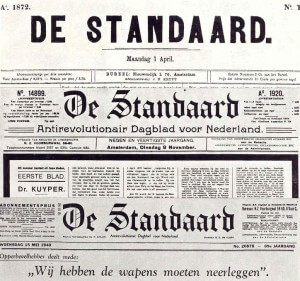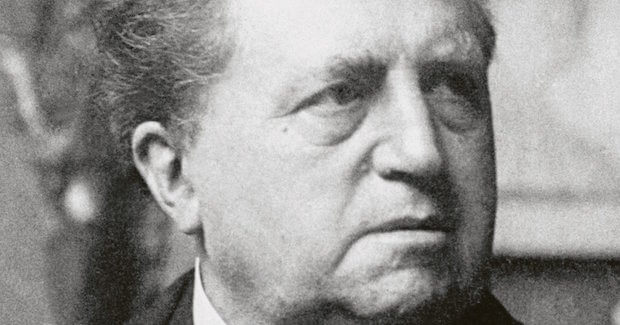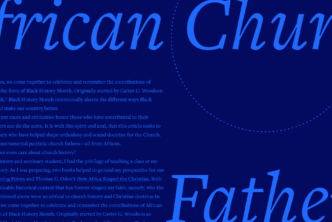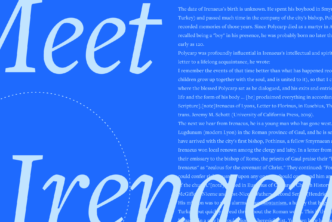Have you ever heard of a theologian being so well-known that his birthday was a national holiday? The nineteenth-century Dutch theologian Abraham Kuyper had such a great impact in the Netherlands that the entire nation celebrated his seventieth birthday in 1907.
Kuyper was a man of many hats: statesman, politician, educator, preacher, churchman, theologian, and philosopher. He was a modern-day Renaissance man who participated in the cultural conversation of his day.
While Kuyper’s influence has been felt throughout the twentieth century in the Dutch Calvinist branch of the Reformed church, his influence has been expanding as scholars continue to mine his writings for resources to deal with the challenges of a public theology for the contemporary world.
Kuyper’s life
Abraham Kuyper was born to a middle-class pastor’s family in the remote fishing village of Maasluis, Netherlands, on October 29, 1837.
As a young boy, Abraham was thought to be a dull student. He began his early education from home. However, he went on to graduate with the highest honors from the University of Leiden, and he did his doctoral work in theology. Leiden, at the time, was a bastion of theological liberalism, with professors who questioned the resurrection of Christ and the existence of the supernatural and embraced a historical-critical view of Scripture.
Kuyper was captivated by this liberal stream of thought but was not content with its answers to all of his questions. After writing an award-winning treatise (in Latin!) on Calvin’s view of the church, Kuyper found himself overworked and exhausted. On a six-week vacation to Germany, he read Charlotte Yonge’s novel The Heir of Redclyffe, and “In the arrogant hero he recognized himself and his spiritual poverty.” He realized the church could console his weary soul in ways his studies could not. Kuyper had seen a vision of what the church could be in his study of Calvin’s writings, but he had not seen that church existing in the Netherlands. As a result, he pledged his life to reforming that church.
Ordained in 1863, Kuyper began to pastor a small church in the village of Beesd. There he found himself pulled in two different directions, both from his orthodox Reformed heritage and from the liberal theology he discovered at Leiden.
After meeting with members of his congregation in their homes, Kuyper found himself at a crisis. De Jong writes, “The choice lay between what he had learned at the university and what these simple folk so firmly believed.” This led him to the conviction that what was wrong with the Reformed church in the Netherlands was that it cared little for its membership, who had no voice in the church and even less a voice in the state and society.
Kuyper moved on to pastor in Utrecht and then, in 1870, he moved to pastor the Reformed Church in Amsterdam, the largest and most influential church in the Netherlands. He pastored there until he was elected to the Dutch parliament in 1874.
Kuyper’s career

During the course of his 57-year career, Abraham Kuyper started two newspapers, founded an influential political party, helped create a new denomination, started a university, was elected as his nation’s prime minister, and authored numerous important books. He spent 10 years as a preacher, 20 years as a professor, 42 years as a newspaper editor and chairman of his political party, 10 years as a member of the Dutch parliament, and four years as the prime minister.
Kuyper’s ideas and academic works emerged from his grass-roots effort to urge his constituency into action, and most of his writings first appeared as newspaper editorials and pamphlets.
In 1898, Kuyper visited the United States to deliver the Stone Lectures at Princeton Seminary. These were compiled into what is perhaps his most well-known work, Lectures on Calvinism, which offers a biblical and systematic view of life and the world. Kuyper also published his own edition of Calvin’s Institutes, since he believed the widely available Dutch translation at the time was insufficient.
Kuyper was a man of action as well as ideas. As scholar James Bratt points out, “For every hour [Kuyper] spent studying great books, he spent two more hours plotting the tactics of church reform, wheeling and dealing with university trustees, meeting with party representatives . . . Kuyper was a movement leader, an institution builder, as well as an intellectual.” Kuyper spurred church, social, cultural, and political change through the advancement of his Reformed views of education, the church, and the state.
Kuyper’s theological distinctives
There are two theological concepts for which Kuyper is most famous: sphere sovereignty and common grace.
Kuyper is known for his famous phrase, “There is not a square inch in the whole domain of our human existence over which Christ, who is sovereign over all, does not cry ‘Mine!’” Indeed, this concept of “sphere sovereignty” is one of Kuyper’s most original ideas. Theologian Richard Mouw describes this concept:
God, [Kuyper] insisted, built into the creation a variety of cultural spheres, such as the family, economics, politics, art, and intellectual inquiry. Each of these spheres has its own proper ‘business’ and needs its own unique pattern of authority. When we confuse spheres, by violating the proper boundaries of church and state, for instance, or reducing the academic life to a business enterprise, we transgress the patterns that God has set.
Kuyper believed that these God-given structures of creation were important for maintaining order and justice in society.
For Kuyper, though sin has pervasively corrupted the world, the glory of God’s created order is not completely obliterated by the Fall, and therefore the various spheres and structures of the earth still reveal glimpses of God’s goodness and power.
Kuyper’s legacy
Abraham Kuyper has been called “a churchman who aroused many to their high calling in a society which had drifted far from its historical Christian moorings.” Kuyper’s ideas have important ramifications for Christians as we think through our place in a secular society and culture, and for that reason it is worth learning from this nineteenth-century Dutch Reformed theologian today.
***
Lexham Press is pleased to announce the publication of a major series of new translations of Kuyper’s writings in public theology. Created in partnership with the Kuyper Translation Society and the Acton Institute, the Abraham Kuyper Collected Works in Public Theology marks a historic moment in Kuyper studies.





